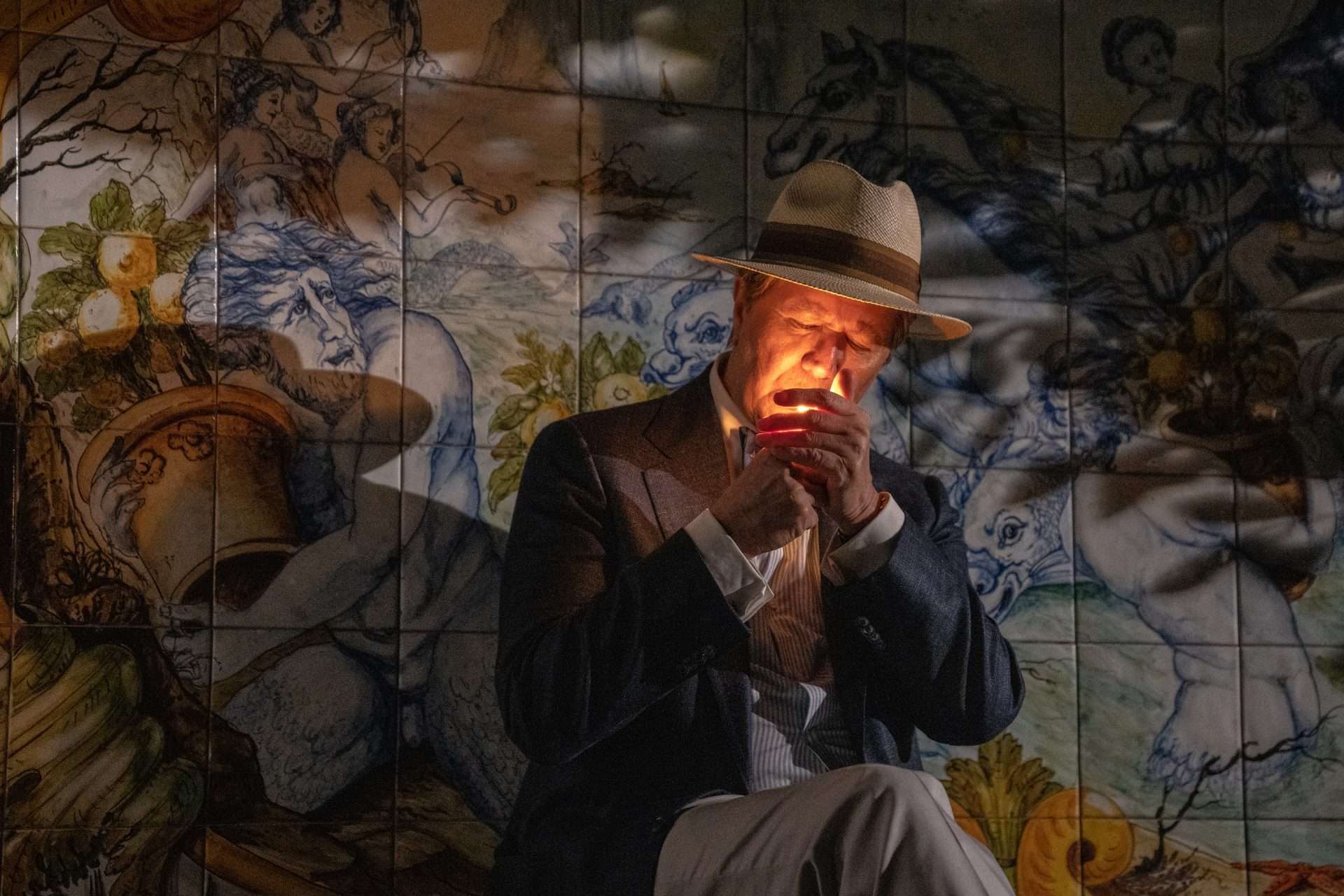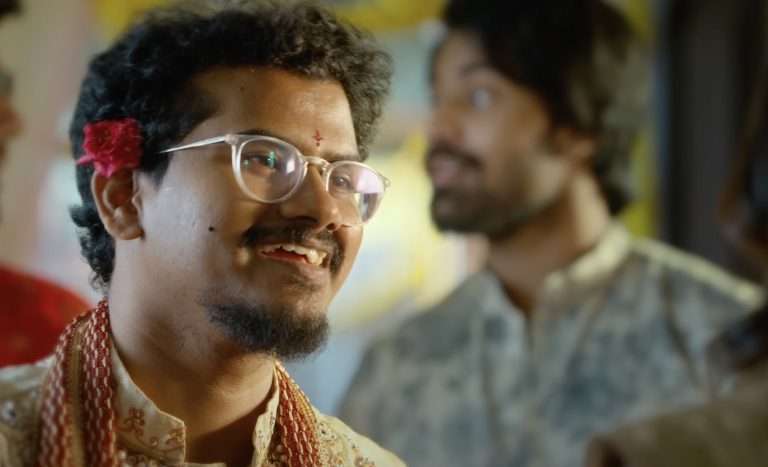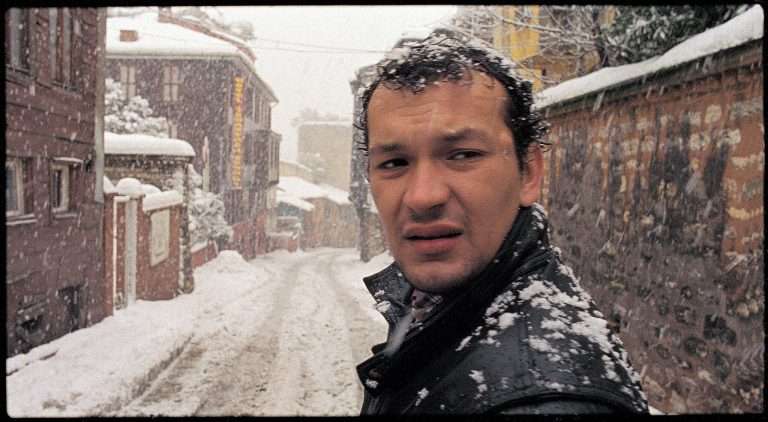Paolo Sorrentino is a filmmaker who is no stranger to spectacle and has succeeded thus far in merging maximalist viscerality with surprisingly sensitive examinations of the human condition. Although it is easy to compare his dreamlike, esoteric work to other international auteurs like Frederico Fellini or Michelangelo Antonioni, it would be disingenuous to suggest that Sorrentino lacks perspective. In fact, the wry sense of humor, interest in pop music, and playful skips through time that may have once been derided as lazy have become integral to his style. Indulgence in itself is not a bad thing, as Sorrentino usually finds a way to justify waxing poetic about the past.
Although much of Sorrentino’s work thus far has been purposefully reflective of his own past, “Parnthenope” dives deep into Greek mythology as a source of inspiration. Set throughout the second half of the 20th century, the film focuses on the flighty young woman Parthenope (Celeste Dalla Porta), who shares a name with the siren that enticed Odysseus in “The Odyssey.” Due to the strange conditions surrounding her birth, “Parthenope” has become an object of desire by many generations of men in Naples, including her brother Raimondo (Daniele Rienzo) and the housekeeper’s son, Sandrino (Dario Aita). Although Parthenope grows increasingly interested in studying anthropology and putting her charm to good use, it becomes a greater challenge for her to deny the profound effect that she has on people.
Subtlety has never been one of Sorrentino’s strong suits, but it also has never been his intention. The opening act of “Parthenope” is an explosive descent into the perils of youth, merging the natural vistas of the beautiful Italian landscape with the obsessive minds of the adolescent characters who are obsessed with each others’ bodies. Although it would have been challenging for Sorrentino to retain this level of lurid sensuality for the entirety of his film, “Parthenope” makes the choice to take a dramatic shift that serves as a reminder of how fleeting the nature of youth really is. It would have been easy for the rest of the film to feel like a slog in comparison, but thankfully, Sorrentino opts to take the story in an introspective, and potentially more hopeful direction as Parthenope’s educational journey is explored.
The most challenging task that Sorrentino placed upon himself is finding a way to transform Parthenope herself into both an individual worthy of investment and a seemingly euphoric idol that inspires the uncontrollable passion of everyone she encounters. Porta gives a truly mesmerizing performance that at times suggests etherealness, yet still lands back in reality whenever the film takes the time to remind its audience that what is occurring is not actually intended to be a myth. The structure would seem counterintuitive, as Parthenope begins the film as a character viewed only in tangent to others, but then steadily proves to be a protagonist. Adding agency to a character that was initially viewed purely as a fixation is not an easy task, but Porta pulls it off in what will surely be one of 2025’s most acclaimed breakthrough performances.

Although the film takes its time to announce what it is really about, the exploration of the inextinguishable link between artistry and humanity really comes alive when Parthenope finds mentors amidst her studies. The first is Gary Oldman as the real American author John Cheever, whose general admiration for Parthenope’s authenticity is only matched by his insistence that she take advantage of her inherent gifts. Oldman is the type of actor who can steal any film, regardless of his screen time, but he is admirably able to appear in support of Porta without diverting the audience’s attention. Sorrentino has always had a somewhat fuzzy dynamic with incorporating real history into his works, but the inclusion of Cheever (as well as some background regarding Italian politics) helps bind “Parthenope” to a specific place and time, ensuring that it does not feel like a total fantasy.
Another supporting actor with a profound impact on the story is Silvio Orlando, who fans of Sorrentino may recognize from his brilliant performance on the HBO miniseries “The Young Pope.” Orlando is one of the most striking performers in the film because he is tasked with playing Devoto Marotta, a stern, yet caring professor who helps Parthenope attain more influence at university. Sorrentino is keen to indicate that the viewers’ knowledge of Marotta is only what is evident through his interactions with the other characters, as he may keep some aspects of his personality a secret from Parthenope. Nonetheless, Marotta opens up to his protege during one of the film’s most powerful scenes in the final act.
The flaws evident within “Parthenope” may only be evident to those who are already familiar with Sorrentino’s work; one of the consequences of being a highly personal filmmaker is that characters and stories can often feel derivative. Sandrino’s curiosity about the female form is quite repetitive of the protagonist in Sorrentino’s semi-autobiographical coming-of-age film “The Hand of God,” and many of the observations he makes about the inherent superficiality of the art world were better explored in his family drama “Youth.” Sorrentino also falls into some familiar traps that make it hard not to view “Parthenope” in relation to his other features; although it does feature some creative needle drops (including a particularly memorable use of Frank Sinatra’s “My Way”), nothing in “Parthenope” can match the brilliance of the collected soundtrack for his music drama “This Must Be The Place.”
Although it may be easy to criticize the lack of focus that Sorrentino has in unpacking the root of his mythological inspirations, “Parthenope” simply succeeds as a gorgeous expression of emotion, and rarely produces a dull moment in its 136 minutes. Despite the fact that the film contains multiple sweeping shots of the sea and celebrations of Italian culture, none of the moments of pure observation feel repetitive, as Sorrentino seems to be just as enamored by the wondrous sights that surround him as his characters are. The emotional poetry that Sorrentino creates within the final moments of the film suggests something even more profound, as he seems interested in the spirit of human goodness that is not bound to just one specific slice of youth. Those looking for depth may be disappointed, but “Parthenope” is a cheeky, enlightening, and frequently exhilarating realization of the absurdities of growing up.




![The Fifth Horseman Is Fear [1965] – A Unique & Timeless Take on Fascist Tendencies](https://79468c92.delivery.rocketcdn.me/wp-content/uploads/2020/01/The-Fifth-Horseman-is-Fear-1965-768x432.jpg)
![Two Gods [2021] Review: A gracefully handled documentary about a casket maker and his prodigies](https://79468c92.delivery.rocketcdn.me/wp-content/uploads/2021/06/Two-Gods-1-768x432.jpg)


